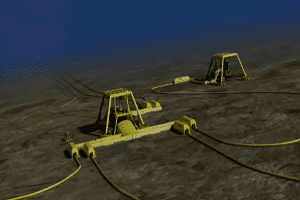
Obama Orders Investigation Of BP Oil Spill. A new report says the White House denied the request of scientists who wanted to make worst-case models of the BP oil spill public. The charges are contained in documents released yesterday by the National Commission on the BP Deepwater Horizon Oil Spill and Offshore Drilling. The commission […]

Obama Orders Investigation Of BP Oil Spill. A new report says the White House denied the request of scientists who wanted to make worst-case models of the BP oil spill public. The charges are contained in documents released yesterday by the National Commission on the BP Deepwater Horizon Oil Spill and Offshore Drilling. The commission was appointed by President Barack Obama to investigate the worst offshore oil spill in history.
According to those documents, unnamed officials told the commission that in late April or early May, the White House budget office denied a request from the National Oceanic and Atmospheric Administration (NOAA) to release the worst-case models. According to a report in the Associated Press, BP estimated the worse scenario to be a leak of 2.5 million gallons per day, but at the time, the administration told the public it amounted to 210,000 gallons per day. It wasn’t until August that the government’s estimates came close to the worst-case models.
In response to the commission’s allegations, Kenneth Baer, a spokesman for the Office of Management and Budget, said the budget office had concerns about the reliability of the NOAA estimates.
“The issue was the modeling, the science and the assumptions they were using to come up with their analysis. Not public relations or presentation,” he told the Associated Press. “We offered NOAA suggestions of ways to improve their analysis, and they happily accepted it.”
According to the Associated Press, the report also faults the director of the White
House Office of Energy and Climate Change Policy, Carol Browner, for claiming during various TV appearances in August that as much as 75 percent of the oil released from the spill was gone. According to the report, the analysis cited by Browner never actually said that. Instead, it said the oil had dispersed, dissolved or evaporated — meaning it could still be there.
“By initially underestimating the amount of oil flow and then, at the end of the summer, appearing to underestimate the amount of oil remaining in the Gulf, the federal government created the impression that it was either not fully competent to handle the spill or not fully candid with the American people about the scope of the problem,” investigators for the commission wrote in their report.
Failing to get flow estimate right early on in the disaster also appears to have slowed the federal response to the spill, the commission said. The investigators write that “for the first ten days of the spill, it appears that a sense of over optimism affected responders.” The commission staff said it is “possible that inaccurate flow-rate figures may have hindered the sub-sea efforts to stop and to contain the flow of oil at the wellhead.”
The BP oil spill began with an explosion aboard the Deepwater Horizon oil rig that killed 11 men on April 20. All attempts to staunch the gusher failed, until a cap was successfully deployed over the well on July 15. By that time roughly 4.4 million barrels of oil had leaked into the Gulf of Mexico.
The personal injury attorneys at Parker Waichman LLP offer free, no-obligation case evaluations. For more information, fill out our online contact form or call 1-800-YOURLAWYER (1-800-968- 7529).


